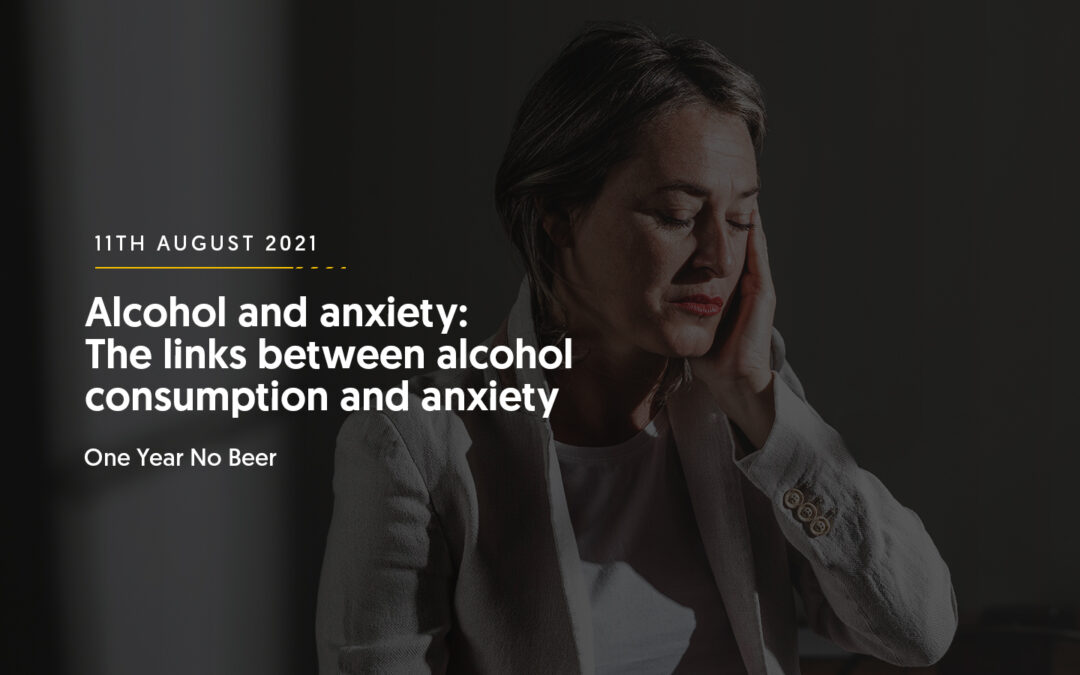Drinking to relax? To de-stress after a busy day? To feel comfortable in social situations? Alcohol is often used to help with feelings of anxiety, but research suggests it may have the opposite effect.
Have you found yourself reaching for a cold glass at the end of a long and stressful day? Just something to take the edge off? To help you sleep? Because you deserve to relax, right?
Alcohol is often used as a form of stress relief or as a tool in managing anxiety, however, research suggests that alcohol could actually be a contributing factor in exacerbating symptoms associated with these mental health issues.
This may mean that the thing you reach for to self-soothe may in fact be causing you more damage than good.
Alcohol and mental health: fast facts
- About 1 in 4 people in the UK will experience a mental health problem each year.
- Alcohol is a depressant, it suppresses the central nervous system and interferes with your natural balance of hormones.
- Research shows reducing consumption of alcohol often resulted in improvements in both depression and anxiety.
- Even when consumed at low levels (one or two drinks a day), alcohol can interact negatively with common medications prescribed for mental health conditions, including antidepressants.
Drinking alcohol to relax or cope
It is common for people to increase their alcohol consumption during times of stress as a way to relax or cope with the situation, for example a quarter of New Yorkers increased their drinking levels after the 9/11 terrorist attacks. While this is an extreme example, it does illustrate that as a society, we have come to rely on alcohol as a method of self-medicating for trauma, stress and worry. Similarly, we have seen countless reports of increased alcohol consumption across the globe throughout the recent pandemic. Those feeling unsettled, nervous or lonely using alcohol as a way to calm themselves.
This is because alcohol is a sedative – it depresses the central nervous system, so technically, it does help to reduce anxious feelings – however, this is very short term, which is why it causes problems.
The sense of relaxation you feel when you drink is due to a rise in your blood alcohol level leading to temporary feelings of excitement, but feelings of depression can occur as levels begin to fall back down. As a result, the impact alcohol has on your mood is fleeting, and can often leave you feeling lower than you did before.
Does drinking alcohol make anxiety worse?
We have seen it countless times with our members. The hangxiety after drinking becomes unbearable, self-care takes a back seat, and general wellbeing starts to nosedive. But after reducing their alcohol intake, over time the cloud starts to lift.
“Over the years, I think I quietly shifted to having a drink for all sorts of occasions: good days, stressful days, fun times, sad times. I didn’t realise it at the time, but anxiety and migraines were to become a regular part of my life. I had never suffered from anxiety before and didn’t know how to handle it. It felt like it came out of nowhere and it completely blindsided me.
“As my 90 days alcohol-free were approaching, I was feeling great, sleeping well and walking every day. The reality was that I could still have fun, still enjoy the sun, be with my friends etc, but didn’t need to have the anxiety and headaches that followed.
“The biggest and best change and benefit of doing this challenge has been the reduction in anxiety. I feel as though I have finally woken up and genuinely feel the most content and calm that I have felt in years.” – Bridgene
What can you do?
If anxiety is becoming an increasing problem in your day-to-day life, or you are worried about how your drinking might be impacting your mental wellbeing, reducing your alcohol intake is a good place to start when trying to relieve these symptoms.
Whether you decide to reduce your intake to comply with government guidelines (no more than 14 units per week, split over multiple days including multiple alcohol-free days) or cutting out alcohol completely, an alcohol-free challenge can help you to achieve either goal. Taking a break from alcohol for a sustained period of time can allow you to reset your relationship with alcohol, experience life completely unclouded and build new healthy habits and coping strategies which support your lifestyle aspirations.
Self-care is so important and can come in many forms – reducing your alcohol intake is one action you can take to help improve your wellbeing and instead focus on what matters to you most.
Sources:
Charlet K, Heinz A. Harm reduction-a systematic review on effects of alcohol reduction on physical and mental symptoms. Addict Biol. 2017 Sep;22(5):1119-1159. doi: 10.1111/adb.12414. Epub 2016 Jun 29. PMID: 27353220.



An entrepreneur and former senior oil broker, Ruari gave up drinking after excessive consumption almost cost him his marriage, and worse, his life. Going alcohol-free improved his relationships, career and energy levels, leading to him founding OYNB to provide a support network for others.








